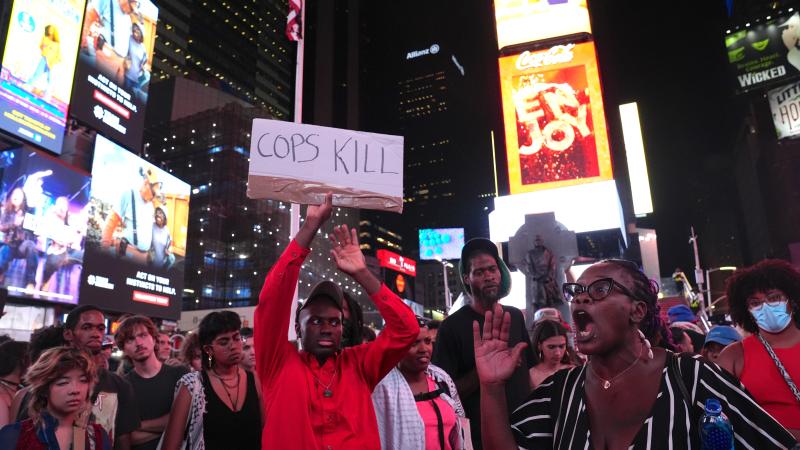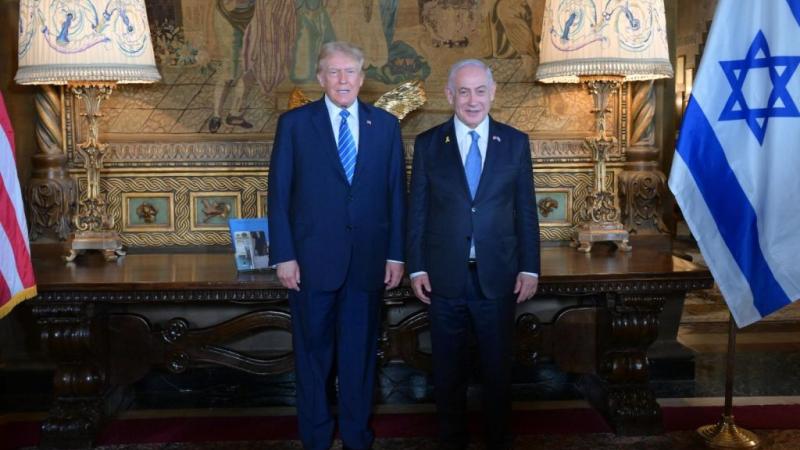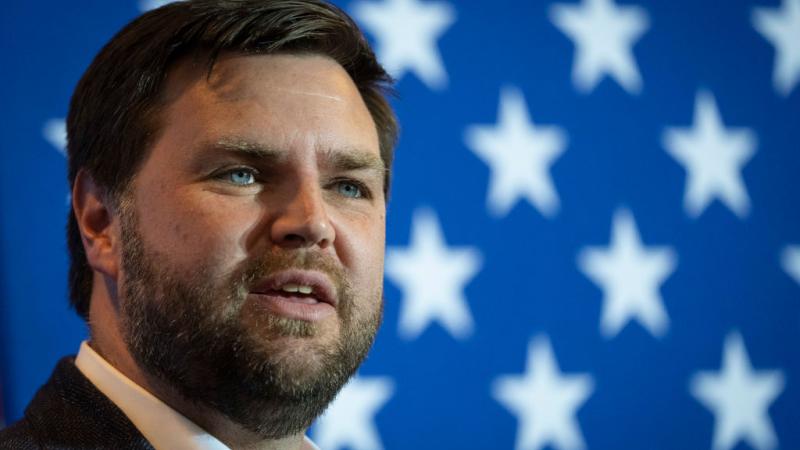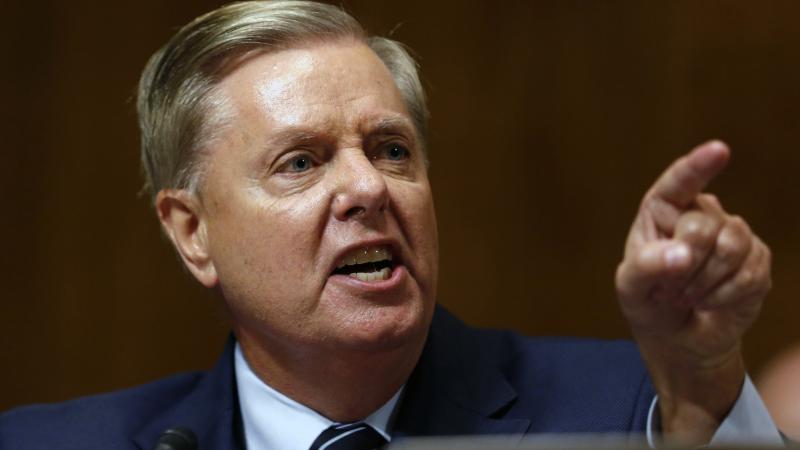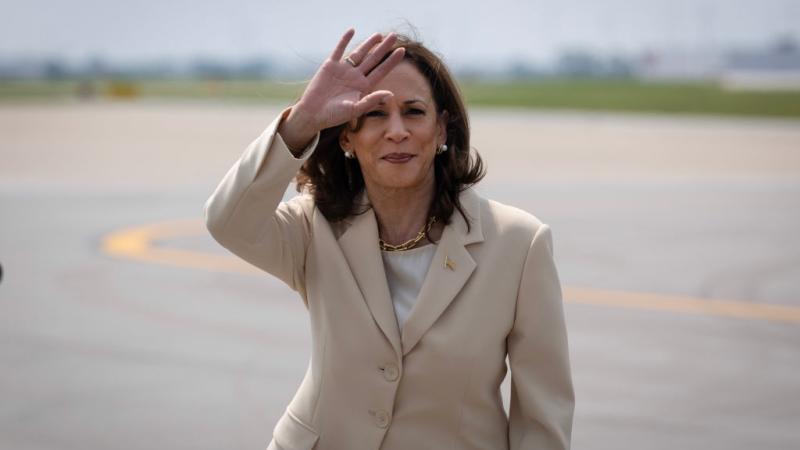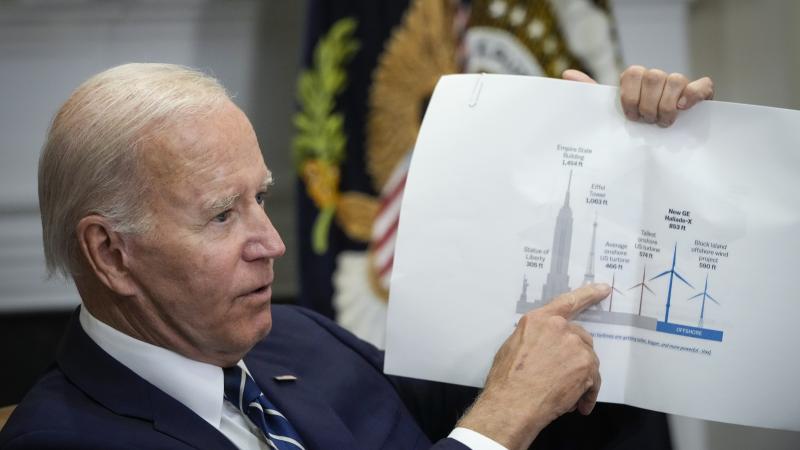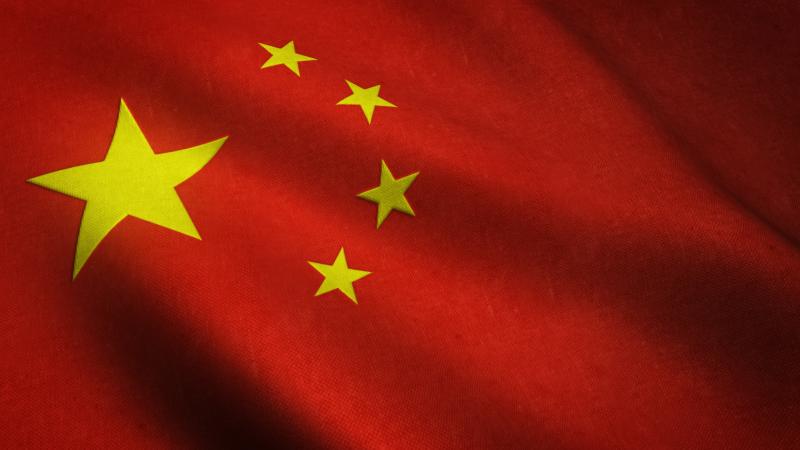Emergency rule emergency? How authorities are invoking crises to exercise unprecedented power
From pandemic to purported threats to democracy, governing elites are invoking emergencies to justify a host of controversial measures — from election rule changes to Big Tech censorship —often without legislation.
Days after the 2008 election, Rahm Emanuel famously issued what's known today as Rahm's rule.
"You never want a serious crisis to go to waste," said Emanuel, then chief of staff to President-elect Barack Obama. "And what I mean by that is it's an opportunity to do things that you think you could not do before."
Emanuel argued the 2008 financial crisis afforded the Obama administration a window to promptly address problems that had previously been deferred indefinitely pending the long-term ripening of political consensus.
Fourteen years later, Emanuel's now-famous phrase on crises has become standard practice in Washington, D.C., as officials in power regularly use what they deem "emergencies"— from viral pandemics to purported threats to democracy — to push controversial measures and restrictions on civil liberties that otherwise might fail due to pushback.
This trend was recently highlighted by President Biden declaring the COVID-19 pandemic over while still maintaining the national emergency declaration on the pandemic as his administration used COVID-19 to justify major executive action.
"The pandemic is over," Biden recently told CBS' "60 Minutes" in an interview. "We still have a problem with COVID. We're still doing a lot of work on it. But the pandemic is over. If you notice, no one's wearing masks. Everybody seems to be in pretty good shape."
However, the Biden administration has yet to lift the public health emergency that was first declared in 2020 for COVID-19. That declaration has allowed the White House to use the National Emergencies Act to activate special executive powers, such as restricting hours of operations at U.S. ports of entry.
This apparent contradiction between declaring the pandemic over and still utilizing its emergency powers was especially evident in Biden's recent announcement that he'll unilaterally cancel $10,000 of federal student loan debt for borrowers making less than $125,000 per year and up to $20,000 for those who received Pell Grants, which support tuition for lower-income students.
Biden didn't issue an executive order when he announced his plan. Instead, his administration invoked the Higher Education Relief Opportunities for Students Act of 2003, commonly known as the HEROES ACT, a law passed after the 9/11 terrorist attacks that allows the secretary of education to provide relief from student loan payments during times of war or national emergency.
According to the Biden administration, the COVID-19 pandemic qualified as such a time of emergency.
When Biden made his announcement, the Justice Department released a legal opinion stating the HEROES ACT gives the education secretary the "authority to reduce or eliminate the obligation to repay the principal balance of federal student loan debt, including on a class-wide basis in response to the COVID-19 pandemic."
The Education Department's Office of the General Counsel issued a memo making an identical argument.
However, Biden's latest declaration about the pandemic undercuts his own legal argument, experts told Just the News. It also spotlights how those in power can exploit emergencies to push their agenda.
"Administrative agencies use the issue of the day to do what they wanted to do anyway," said John Vecchione, senior litigation counsel for the New Civil Liberties Alliance. "With student loans, they're trying to get more juice out of COVID. They're going to try anything to do what they wanted to do anyway, then address questions about statute and if the action is in [the legal text] or not."
House Speaker Nancy Pelosi (D-Calif.) and Biden himself have also said previously that a president doesn't have the power to cancel student debt on a large scale.
Biden's student loan forgiveness plan is the latest example of government officials and allied elites justifying a range of extensive initiatives as an emergency public health response to COVID-19.
"Government will always take the crisis of the day and push what they want," said Vecchione. "Take the CDC eviction moratorium. Officials in power didn't like evictions, so they got rid of them."
Vecchione was referring to the Centers for Disease Control and Prevention, backed by the Biden administration, citing COVID-19 to justify a moratorium on eviction. The Supreme Court eventually rejected the moratorium, arguing the CDC exceeded its authority.
One of the more contentious aspects of the government's exercise of emergency authority during the pandemic was the federal imposition of sweeping mandates requiring millions of Americans to get the COVID-19 vaccine.
In January, the Supreme Court struck down the administration's mandate requiring private businesses with 100 or more employees to ensure all workers get vaccinated or submit to weekly COVID-19 testing, ruling the Occupational Safety and Health Administration doesn't have the authority to issue such a far-reaching rule.
"Administrative agencies are creatures of statute," said the court opinion. "They accordingly possess only the authority that Congress has provided. The secretary has ordered 84 million Americans to either obtain a COVID–19 vaccine or undergo weekly medical testing at their own expense. This is no 'everyday exercise of federal power.' It is instead a significant encroachment into the lives — and health — of a vast number of employees."
The high court did allow a vaccine mandate to stand for medical facilities that take Medicare or Medicaid payments. The administration is also currently fighting to uphold mandates requiring vaccines for federal government workers and those who work for government contractors.
Beyond vaccines, another contentious issue throughout the pandemic was the imposition of lockdowns — particularly by state governments — all of which were pitched as public health measures to combat the spread of COVID-19.
In New York City, for example, officials welded shut playgrounds and shut down schools for Orthodox Jews, who were secretly studying their faith underground.
The New York state government, meanwhile, imposed restrictions on religious services until they were struck down by the Supreme Court.
"It is time — past time — to make plain that, while the pandemic poses many grave challenges, there is no world in which the Constitution tolerates color-coded executive edicts that reopen liquor stores and bike shops but shutter churches, synagogues, and mosques," Justice Neil Gorsuch wrote in his opinion.
In Michigan, to cite another example, people with multiple homes in the state were barred from traveling freely between those properties as part of a stay-at-home order.
Nationwide, lockdown measures also prevented many businesses from operating in an effort to combat the virus.
A study from Johns Hopkins University earlier this year found that lockdowns "imposed enormous economic and social costs where they have been adopted" before concluding, "Lockdown policies are ill-founded and should be rejected as a pandemic policy instrument."
The restrictions on civil liberties weren't confined to the U.S.
In Canada earlier this year, truckers opposed the nation's COVID-19 mandates by creating a "freedom convoy" and blocking roads in downtown Ottawa. In response, the Canadian government claimed sweeping powers under the Emergencies Act, such as banning public assembly in certain locations.
The government also ordered banks to freeze the accounts of those involved in the convoy and cease providing financial services when the institution suspected that an account, either personal or corporate, was being used to further the blockade. Banks and other financial service providers didn't need a court order to freeze an account and were protected against civil liability.
The measures mirrored antiterrorism laws, broadening the scope of Canada's anti-money laundering and terrorist financing rules to cover crowdfunding platforms as a way to stop funding from reaching the Freedom Convoy.
Days after introducing these measures, the government ended its special emergency powers.
Returning to the U.S., perhaps most notoriously, Democrats pushed a host of initiatives to upend the nation's voting laws in unprecedented ways, which fueled doubts about Biden's victory in the 2020 presidential election.
In the months before the election, the Democrats' top election lawyer, Marc Elias, spearheaded dozens of legal efforts across the country to challenge state election integrity laws — such as voter ID requirements and absentee ballot witness requirements — which, they argued, disenfranchised voters.
Many of these laws had been enacted by state legislatures and signed by governors before Elias pushed to have them suspended by courts.
Elias justified his campaign as a public health response to COVID-19, pushing states to adopt universal mail-in voting and no-excuse absentee ballots so people didn't have to go out to polling places on Election Day. Historically, absentee, by-mail ballots were only meant for voters who had a legitimate reason for being unable to vote in person on Election Day, such as military deployment overseas.
The lawsuits were part of an effort to "take advantage of COVID-19 to get the changes they've wanted for years into election rules" and had the effect of "plaguing" the 2020 election, according to Hans von Spakovsky, a senior fellow at the Heritage Foundation and manager of its election law reform initiative.
Meanwhile, Democrats sought (unsuccessfully) to push a bill in Congress that would implement similar election law changes nationally, attempting to federalize election rules by forcing states to implement mandates from Congress.
The Constitution primarily gives state legislatures, not the federal government, the power to create and enforce their own election procedures.
The voting changes were justified to combat not only COVID-19 but also another emergency: a purported existential threat to American democracy posed by Trump supporters.
Following the controversy of the 2020 election, Republicans in some states such as Georgia have pushed a series of election reforms with the stated purpose of combating voter fraud and protecting election integrity
These measures include requiring voters to provide identification to receive an absentee ballot and prohibiting ballot harvesting, a tactic, outlawed in most states, in which third-party activists gather and deliver voters' ballots.
Biden has consistently described these efforts as "voter suppression" meant to make it harder for people, especially minorities, to cast their ballots. He said Trump "and his supporters" want "to suppress your vote, to subvert our elections" and "to disenfranchise anyone who votes against them," describing Republican election reforms as "Jim Crow 2.0," a reference to laws that enforced racial segregation in the South.
"That's the kind of power you see in totalitarian states, not in democracies," Biden said earlier this year. "Will you stand against election subversion? Yes, or no? Will you stand for democracy? Yes, or no? ... Do you want to be on the side of Dr. King or George Wallace? Do you want to be on the side of John Lewis or Bull Connor? Do you want to be on the side of Abraham Lincoln or Jefferson Davis?"
In a speech last month, Biden called Trump and supporters of the Make America Great Again movement aligned with him "threats" to the country and democracy itself. He echoed that point in a speech last week, describing "MAGA Republicans" as extremists who don't accept the rule of law.
Despite such claims, Democrats themselves may intervene in the 2022 midterm elections through a series of rule changes similar to 2020.
Last year, Biden signed an executive order titled "Promoting Access to Voting," which enshrined several election reforms supported by Democrats and adopted during the pandemic purportedly on a temporary, emergency basis.
The order also directed the heads of federal agencies to send the White House "a strategic plan outlining the ways identified under this review that the agency can promote voter registration and voter participation." Amid speculation that the administration's plan could include ways to intervene in the 2022 midterm elections, the Justice Department is refusing to release documents outlining the strategy.
Beyond being invoked to engineer Democrat-friendly changes to election law, the alleged emergency threat to democracy is also being cited to license extraordinary measures against so-called insurrectionists and domestic extremists.
Biden and his allies have similarly described those involved in the Jan. 6 Capitol riot, or who support legal fair play and humane treatment for Jan. 6 prisoners, or who question the results of the 2020 presidential election as insurrectionists and threats to American democracy.
"I've said it before: We are facing the most significant test of our democracy since the Civil War," said Biden. "That's not hyperbole. Since the Civil War. The Confederates back then never breached the Capitol as insurrectionists did on January the 6th."
Earlier this year, Democrats launched a campaign to label and disqualify Republicans who supported efforts to question the 2020 presidential election results as insurrectionists who tried to subvert American democracy.
The Justice Department has arrested nearly 900 people for charges related to Jan. 6, imprisoning most without a trial. Several have said the FBI, Justice Department, and federal prison officials under the Biden administration violated their constitutional rights. The vast majority weren't accused of carrying a weapon, assaulting law enforcement, or destroying property. Many didn't even enter the Capitol building.
Just the News has previously reported on growing outcry among legal experts and civil libertarians over what they described as the Justice Department's strong-arm tactics targeting Trump allies and critics of the Biden administration. Many of the incidents under scrutiny were related to the government's Jan. 6 investigation.
The Homeland Security Department, meanwhile, in February put out a "National Terrorism Advisory Bulletin" discussing how "conspiracy theories," "misleading narratives," and "and other forms of mis- dis- and mal-information" can fuel foreign and domestic terrorism. It cited "false or misleading narratives regarding unsubstantiated widespread election fraud and COVID-19" online as "key factors contributing to the current heightened threat environment."
The national emergency to protect democracy from terrorists and insurrectionists has also extended to Big Tech.
Whistleblower documents released last month by Republican Sens. Josh Hawley (Mo.) and Chuck Grassley (Iowa) showed DHS officials writing that homeland security is threatened by disinformation, especially "conspiracy theories about the validity and security of elections" and "disinformation related to the origins and effects of COVID-19 vaccines or the efficacy of masks."
The documents obtained by Hawley and Grassley also showed an effort by DHS to recruit Twitter and other Big Tech firms to aid in its mission to stamp out "disinformation."
The attorneys general of Missouri and Louisiana are pursuing a lawsuit against the Biden administration for allegedly colluding with social media giants like Twitter and Facebook to suppress freedom of speech on a number of topics, including the origins of COVID-19, the efficacy of masks, and election integrity.
Another area where authorities have sought to implement ambitious policy changes through an emergency is climate change, especially following Russia's invasion of Ukraine earlier this year.
Biden's ban on Russian energy imports prompted liberals to argue he should further extend his executive powers and declare a national climate emergency.
Several Biden administration officials then argued the Russia-Ukraine war presented an opportunity to accelerate the transition from fossil fuels to renewable energy and sustainable agriculture.
"Never let a crisis go to waste," Administrator of the U.S. Agency for International Development Samantha Power said in May, explaining the administration was encouraging "natural solutions" for farmers amid a fertilizer shortage.
Both Energy Secretary Jennifer Granholm and the White House Council of Economic Advisers suggested the Russian invasion could be an impetus to push the green energy transition.
Biden's special envoy for climate issues, John Kerry, warned earlier this year that Russia's war in Ukraine will produce "massive emissions" and distract the world from "what we need to do for the climate."
More broadly, Biden has considered declaring a national climate emergency as he and other leaders describe climate change as an existential threat to humanity and the entire planet.
Of course, invoking emergencies to advance a policy agenda is neither new nor confined to one political party.
Former President Trump, for example, declared a national emergency on the border with Mexico in order to access billions of dollars that Congress refused to give him to build a border wall.
The Facts Inside Our Reporter's Notebook
Links
- said
- told
- announcement
- Pell Grants
- opinion
- memo
- undercuts
- said
- rejected
- struck down
- opinion
- fighting
- welded
- shut down
- were
- studying
- underground
- barred
- study
- claimed
- ended
- fueled
- spearheaded
- according
- pushed
- described
- said
- called
- speech
- executive order
- refusing
- have
- described
- question
- said
- launched
- imprisoning
- said
- reported
- targeting
- National Terrorism Advisory Bulletin
- mis- dis- and mal-information
- documents
- showe
- pursuing
- argue
- said
- suggested
- warned
- considered
- declared




